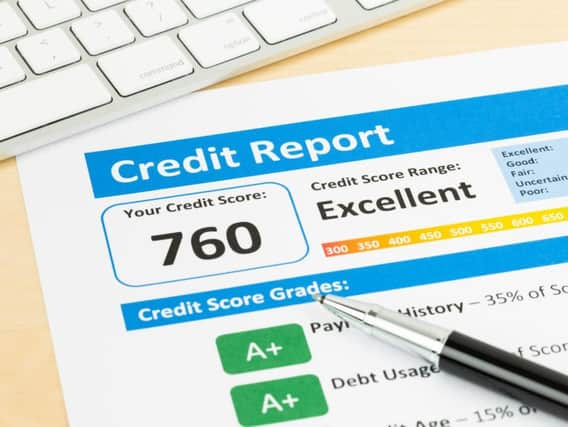Credit where credit's due


Which? research has shown that more than half of us have never checked our credit report and it’s no wonder when there’s widespread confusion about just what information the reports contain and how they are used by lenders to decide on giving mortgages, loans or credit cards.
There are so many myths around credit reports- here are a few Which's Alex Neill can bust for you straight away…
Advertisement
Hide AdAdvertisement
Hide AdYou have to pay a lot of money to access your credit report.
Total nonsense. Under the Consumer Credit Act 1974, you have a legal right to access your report from a credit ratings agency for just £2. This report provides a snapshot of your credit history, but no credit score. CRAs like Equifax and Experian offer unlimited access to your credit report and score - for £15 a month - but they may not be worth it as you can get free access via Clearscore.com or Noddle.co.uk.
There’s a credit blacklist.
No there isn’t. Each lender assesses you against its own criteria, so while one might refuse you, another will accept. There’s also no universal ‘score’ used by lenders.
Missed payments stay on your report permanently.
They stay there for up to six years after the account has been settled or written off, but they’re not there forever.
They know how much money I have in my account.
Advertisement
Hide AdAdvertisement
Hide AdThey don’t. They also don’t have information on parking or driving fines, council-tax arrears, savings accounts, criminal records, the number of children you have, information about previous occupants of your property or your marital status.
Checking my score regularly can badly affect it.
This is a biggie. A third of people in our research believed this. But there’s no way that checking your report can affect it. Doing so regularly can in fact help you to spot fraud early and identify any errors.
So go on, don’t be scared, have a look at your credit score and take control of your finances.
Ask Alex
Remember, don’t panic if a credit card or loan application is rejected. You can improve your chances of being accepted in future.
Advertisement
Hide AdAdvertisement
Hide AdMake sure you’re on the electoral roll and remove old financial associations from your report.
If you spot a mistake get it rectified quickly. Contact the company which provided the incorrect information or the CRA which will investigate on your behalf.
If the company doesn’t agree there’s been an error you can add a 200-word ‘notice of correction’ to your report.
Ask the authjor any consumer questions at [email protected]